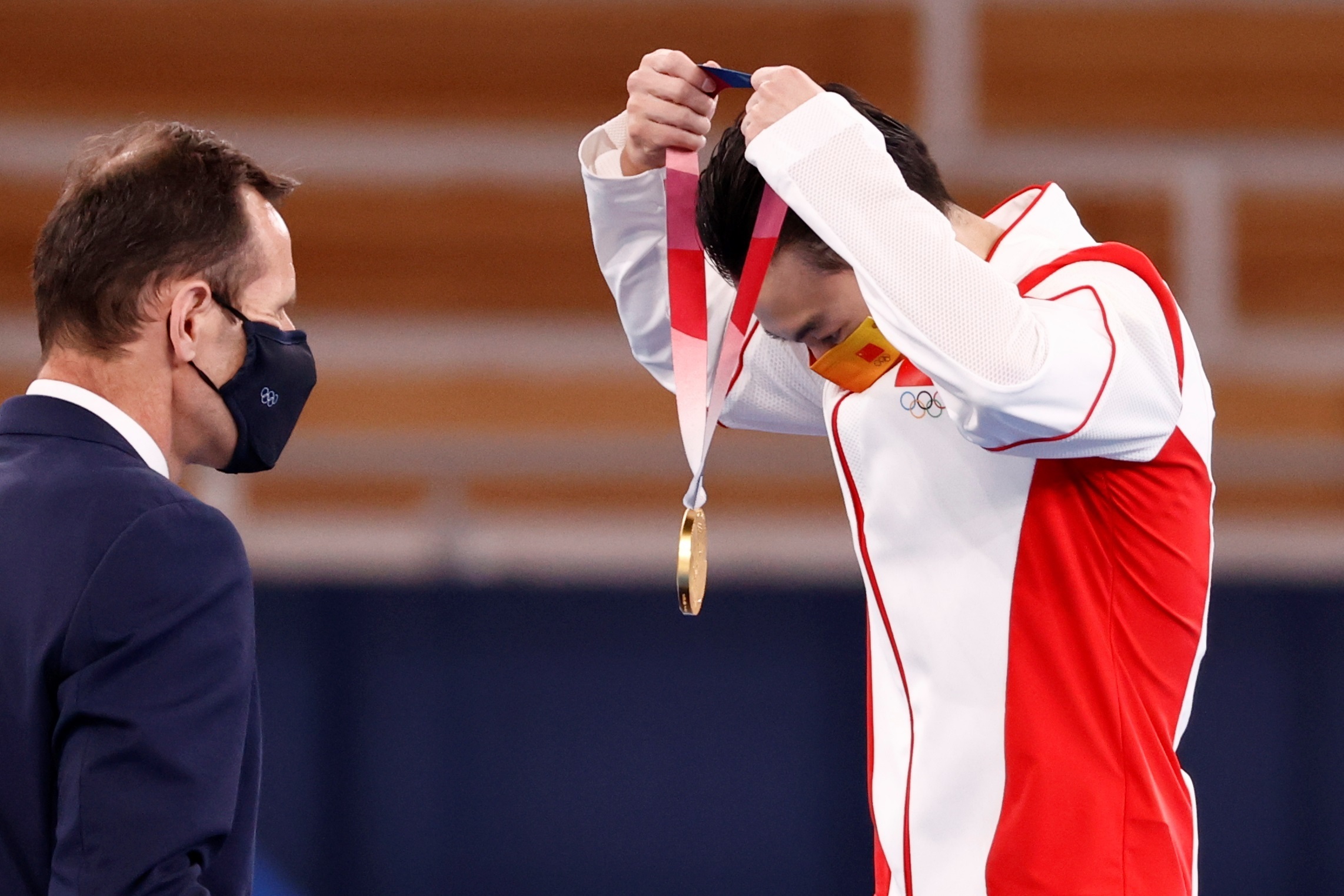Medal table Spain, with 10 metals
Program Schedule and medal options for Spaniards for Thursday, August 5
Calendar All tests of the day
China's mixed doubles table tennis team tearfully apologized on their country's public television for winning the silver medal.
"We are very sorry. I think the entire Chinese team cannot accept this result," said player
Xu Xin
, bowing in front of the camera to apologize.
His partner
Liu Shiwen
couldn't hold back the tears.
"I feel like I have failed the team," he blurted out trying to win the indulgence of his compatriots.
It was useless because the defeat in the final had been against Japan, with whom China shares a troubled history.
"You have failed the entire nation," read one of the thousands of critical comments posted on Weibo, the Chinese Twitter.
Li Junhui and Liu Yuchen
had to apologize for another much more vehement
apology
for losing the men's badminton doubles final to Taiwan, the island with a young democracy that China considers one of its provinces.
In the Olympic Games it participates with the name of Chinese Taipei.
Chinese social media blazed against their players for defeat when one of the Taiwanese gold medalists,
Wang Chi-Lin
, wrote "I'm from Taiwan" on Facebook a few hours after listening to the Chinese anthem on the podium.
At least in table tennis and badminton they had won the silver medal.
Imagine what
marksman Wang Luyao
had to go
through
after falling out of the women's 10-meter air rifle final as one of the favorites.
There were many insults he received on Weibo.
So much so that Beijing's machine of vituperation, accustomed to using its digital soldiers to erase criticism of the regime, this time used its censorship powers to eliminate many of the comments that attacked the athlete and sanction 33 users without being able to publish in the social network for 180 days.
China sent the largest delegation in history to Tokyo, represented by 413 athletes.
They all landed after hearing the message from
Gou Zhongwen
, chairman of the Chinese Olympic Committee: "We must firmly guarantee that we will win the gold medal first."
They are not doing badly in this final stretch of the Games.
At the end of this report, China had won 32 golds, surpassing those obtained in Rio 2016 (26) when there are still many finals to play.
CONTROVERSIAL CLASSIFICATION
In the official medal table, that of the International Olympic Committee (IOC), the Asian giant appears first because the organism orders the classification giving preference to the gold medals.
All countries reproduce this criterion, except the United States.
Large media such as the
New York Times
or the
NBC
chain
, place their country at the top of the table because it is the one that has the most metals in total (79), without giving more importance to gold than to silver or bronze.
Many criticisms have been received for that criterion.
Not just from China.
The American network
Fox Sports
published an article describing "the strange way in which the United States is manipulating the Tokyo medal table."
China continues to add new gold medals every day and hopes to break its record of 48 in Beijing 2008.
In women's track cycling, the pair
Bao Shanju and Zhong Tianshi
broke the world record by finishing in 31.895 seconds. On the podium, both athletes collected their gold with a pin from the communist leader
Mao Zedong
. The IOC later reported that it had launched an investigation because "Rule 50 of the Olympic Charter prohibits political statements on the podium at the Tokyo Games and the upcoming 2022 Beijing Winter Games."
Chinese athletes have won the gold medal in all weightlifting categories. In gymnastics,
Zou Jingyuan
won the parallel bars final, Liu Yang the rings event,
Zhu Xueying the
trampoline gymnastics final, and
Guan Chenchen
the women's balance beam final, where
Simone Biles
took bronze. In swimming,
Wang Shun
won the 200-meter strokes, ending 17 years of American rule.
Zhang Yufei
, in the men's category, the 200-meter butterfly. You have to add a gold in rowing, sailing, fencing, four in Olympic shooting ...
To understand the gold machine that the world's second largest power has become, you have to look at a state that recruits thousands of children each year for full-time training in more than 2,000 government-run sports schools.
The Chinese Jingyuan Zou hangs gold in parallel. EFE
As a
New York Times
report explains
, to maximize the gold harvest, Beijing has focused on less prominent sports that offer multiple medal options and are underfunded in the West.
Almost 75% of the Olympic gold won by China since 1984 is concentrated in six sports: table tennis, shooting, diving, badminton, gymnastics and weightlifting.
Many of these specialties are found in schools like Beijing's Shichahai, one of the largest high-performance centers for young athletes who come there as children to pound themselves.
In China they call this place the "cradle of champions".
It is located in the center of Beijing, amid bustling restaurants and imperial residences packed with tourists.
When Beijing was named the host of the 2008 Olympics, the Chinese Communist Party government put in a lot of money to power centers like Shichahai with the intention of creating authentic individual sports machines that would compete with American athletes.
An investment that, just by looking at the Tokyo medal table, is paying off.
According to the criteria of The Trust Project
Know more
sports
HBPR
Diary of the Games (IX) The stumble of the Sudanese who did not want to be a child soldier
Tokyo Olympics Why is Spain a world power in team sports?
Tokyo GamesA Games with Freedom of Expression: The Long Road from Black Power to Black Lives Matter
See links of interest
Last News
Translator
Tokyo Results
2021 business calendar
Home THE WORLD TODAY
Master investigative journalism
Spain - France, live

